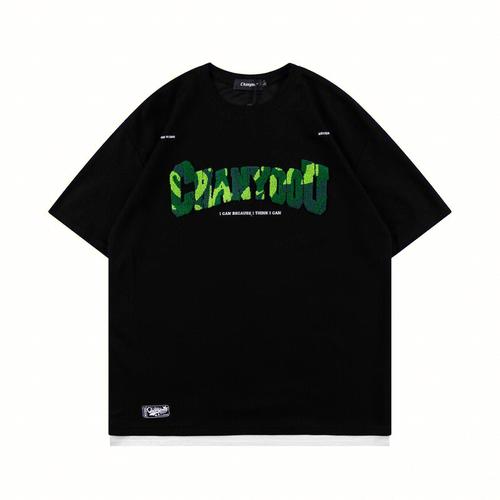Working with a professional designer to customize your clothes can be a fun and challenging experience. The following is the general process of communication and cooperation with professional designers:
1. Initial communication: First, you need to conduct preliminary communication with the designer to clarify your needs and expectations. This includes requests for the type, style, color, fabric, etc. of clothing you would like to customize. You can provide some reference images or samples so designers can better understand your requirements.
2. Concept exchange: The designer will further communicate with you to understand your design concept and style requirements for clothes. They may provide professional advice and suggestions to ensure the final design suits your body shape, temperament and personal preferences. The designer may show you some similar design examples to help you better understand their concept.
3. Hand drawing or computer drawing: Based on the initial communication and exchange, the designer will start to draw by hand or use computer software. They will translate your ideas into concrete designs, including the style, cut, details and embellishments of the garment. The designer will show you how the design will look through drawings or virtual models.
4. Modification and confirmation: Once the designer completes the preliminary design drawing, they will repeatedly modify and confirm it with you. You can suggest any changes or suggestions and the designer will make adjustments based on your feedback to ensure the final design meets your expectations. This process may require several rounds of revisions and confirmations until you are satisfied.
5. Fabric selection and customization: Once the final design drawing is confirmed, the designer will give corresponding fabric suggestions and work with you to choose the most suitable one fabric. The designer may provide fabric samples for you to choose from. Once the fabric is determined, the designer will begin creating the custom garment and take the necessary body measurements.
6. Making and fitting: Using advanced cutting and sewing techniques, designers will begin making custom clothes. Once the garment is made, you will be tried on it and work with the designer to evaluate aspects such as comfort, fit and visual impact. If tweaks or corrections are needed, the designer will make adjustments accordingly until you are satisfied.
7. Completion and Delivery: After final adjustments and confirmations, your custom garment will be completed and delivered to you. You can learn how to properly wear and care for your custom-made garment with guidance from a designer.
Working with professional designers to customize clothes requires patience and good communication. It is important that you clearly express your needs and preferences, but also listen to the professional advice and opinions of the designer. Working with a designer will help you realize your dream garments and ensure you receive high-quality and personalized custom-made clothing.




